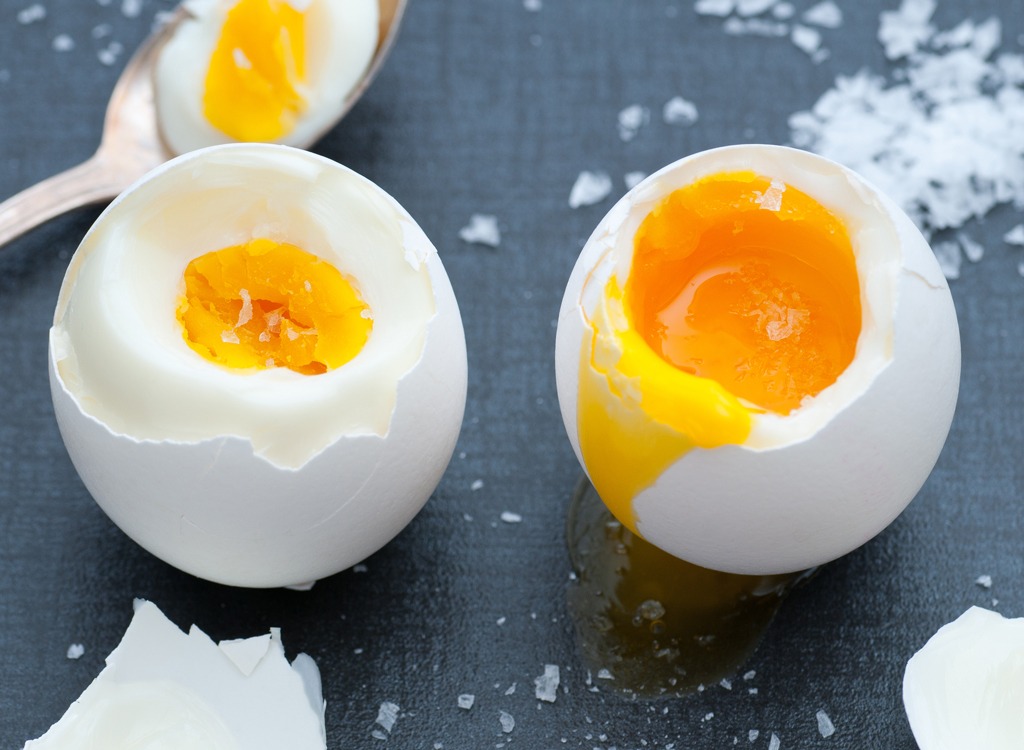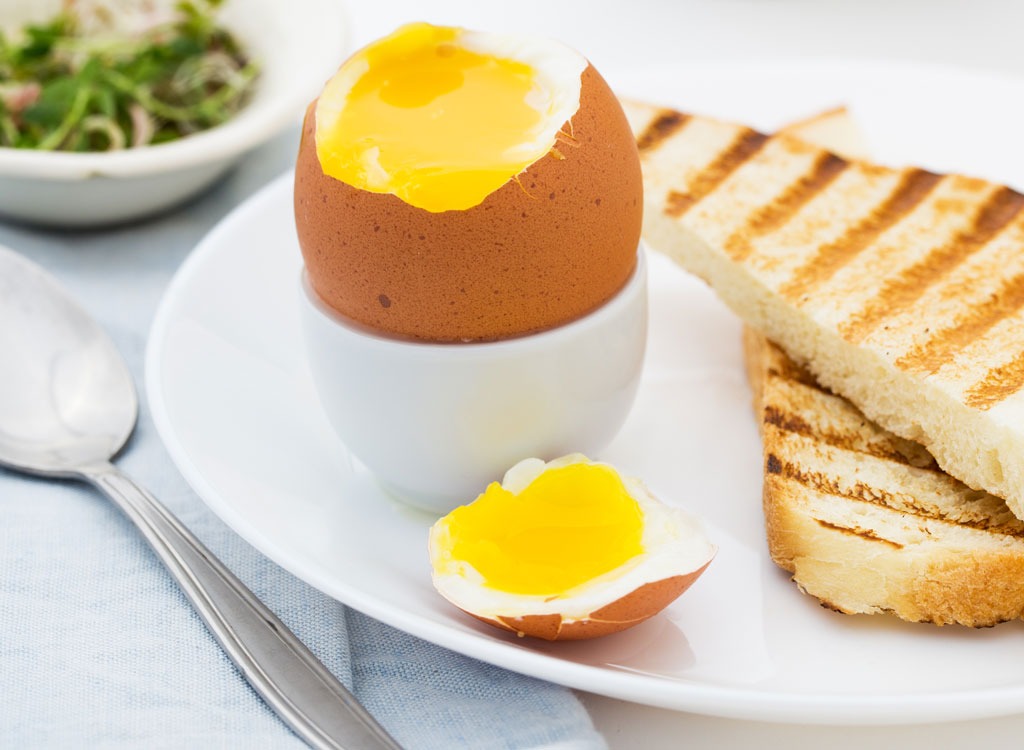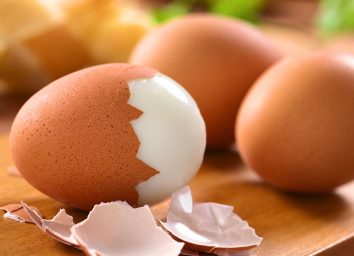The Best Way To Cook an Egg For Weight Loss

Sunny-side up, over easy, baked, and boiled: there are nearly a dozen different ways you can cook an egg. But did you know that the method you choose to prepare this protein can either help or hurt your weight-loss goals?
To research the new book Zero Belly Breakfasts, we pored through countless studies to find that certain cooking techniques can actually maximize the health value of the mighty egg. And although this extremely versatile food is one of the cheapest sources of protein you can buy, you might as well try to get as much bang for your buck if you’re eating the superfood every day.
According to our findings, the best method we determined to cook an egg is by soft boiling it. In this method, the whole, shell-on egg is dropped into a pot of boiling water and cooked for roughly six minutes. Enough time for the whites to solidify and the yolk to remain runny. Once you shock the egg in cold water, you can peel away the shell and eat your golden egg alongside a piece of avocado toast.
So what exactly makes this method rank above the rest in terms of furthering your slim-down efforts? It comes down to protein, micronutrients, and calories.

Compared to poaching an egg, you’ll retain more of the egg and consume more protein: a macronutrient that a The Journal of Sports Science & Medicine review found to be more efficiently utilized by our body for growth compared to other animal proteins. And when you can absorb more lean protein, you can build muscle mass, boost metabolism, and displace fat more effectively.
Next up is micronutrients. In a soft-boiled egg, the yolk remains runny, which is key. Unlike hard-boiled eggs or scrambled eggs, a runny yolk has been found to contain more of the heat-sensitive nutrients like belly-fat-fighting choline, metabolism-regulating selenium, mood- and immunity-regulating vitamin D, and energy-promoting vitamin B2 (riboflavin) and B12. Plus, a Journal of Agricultural Food Chemistry study found that you could lose as much as 18 percent of an egg’s levels of free-radical-fighting antioxidants when you cook the yolk.
And finally: calories. When it comes to weight loss, calories count. Certain cooking methods require fat, such as oil or butter. Just a tablespoon of butter can add an additional 100 calories to your morning meal. Soft boiling your eggs is a calorie-free method that helps keep extra calories off your plate and pounds off your frame.
That’s all, yolks! We hope you take this egg-cellent advice and use it to further your body goals, and then discover the more than 100 recipes and nutrition secrets in Zero Belly Breakfasts. Test panelists lost up to 16 pounds in 14 days.








